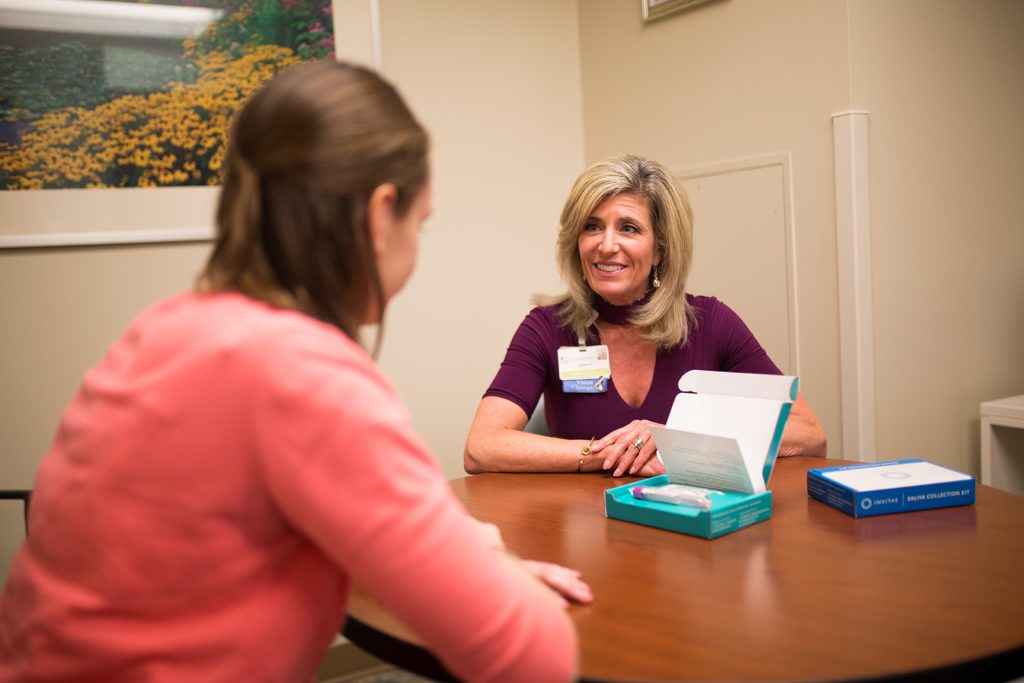At-home genetic testing kits are at the height of popularity right now. But is the information valuable – or just for entertainment?
From 23andMe to AncestryDNA, there is an abundance of at-home genetic testing kits that are available right now. You simply buy a kit, mail in a saliva sample and six weeks later, the company emails you a report.
The at-home genetic kits can tell you an assortment of fun facts, such as sweet vs. salty or your likelihood of going bald. The at-home kits can also narrow down the origins of your ancestors, shedding light on if your great-grandmother’s claim of being 100% Irish has any truth to it. It’s fun, entertaining and gives many families an opportunity to bond over the results.
However, if you are interested in an accurate medical focus – answering questions like “What’s my likelihood of getting breast cancer?” or “Will I get heart disease like my parents?” – the genetic experts at St. Elizabeth Healthcare recommend making an appointment at the St. Elizabeth Center for Precision Medicine and Genomic Health.
“Our genetic counselors and specialists can provide risk assessment for hereditary cancer, cardiovascular disease and many other inherited conditions,” says Jaime Grund, certified Genetic Counselor. “Our comprehensive genetic testing services are perfect for those people who are looking for details about their family history, who are experiencing symptoms of a genetic disorder or who are considering getting pregnant.”
Keep it in Context
The genetic experts at St. Elizabeth caution that while the at-home genetic testing kits can provide some interesting information, each patient’s genetic information needs to be evaluated and interpreted within that person’s family tree to provide context.
While some at-home genetic tests are offering expanded testing to include breast cancer screenings, Jaime says it’s important to note that the at-home tests are screening for a limited number of mutations out of thousands. This could either give you a false positive or a false negative.
“It’s incredibly important to keep up with your routine preventative care, like mammograms, blood tests or annual exams,” says Jaime. “Genetic testing doesn’t give you a free pass out of preventative care. We want patients to understand that it’s just one tool that is most effectively used as a compliment with comprehensive medical and preventive care.”
St. Elizabeth Healthcare: A Tri-state Leader in Genetic Counseling
St. Elizabeth has always had a strong presence in genetics, establishing a genetic counseling program in 1999 and hereditary cancer risk testing in 2003. More than 14,000 patients from the Tri-state area and beyond have been referred through our genetic counseling program. For more information on genetic testing and counseling services, please contact the St. Elizabeth Center for Precision Medicine and Genomic Health at (859) 301-5396 to schedule an appointment.

